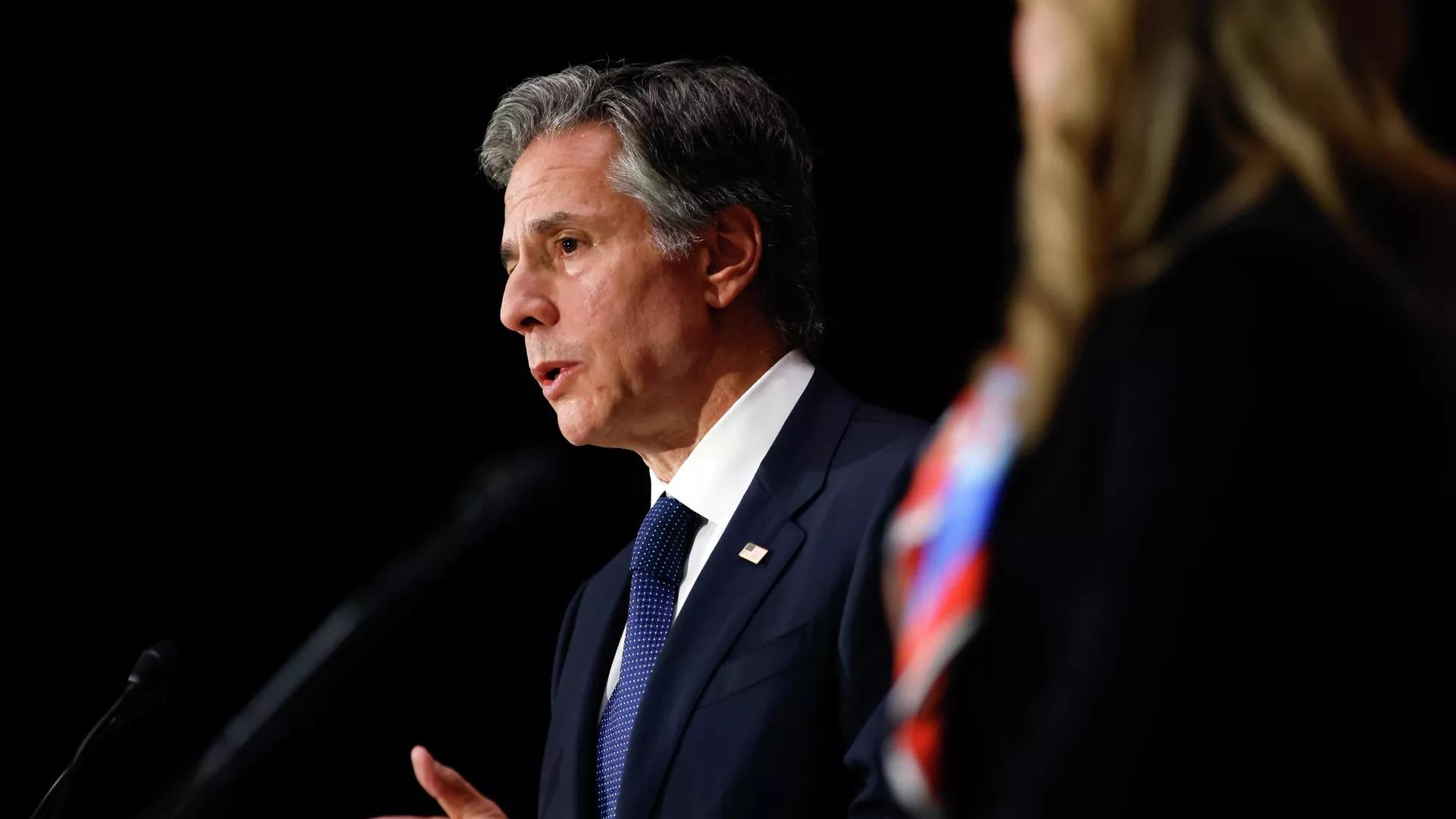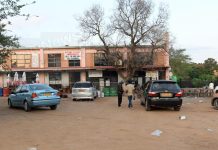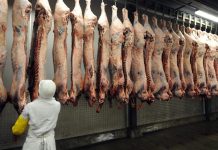Africa-Press – Botswana. In late July, two agreements were signed in Istanbul. The first one provides for the removal of anti-Russian restrictions on the export of agricultural products and fertilizers, while another provides a mechanism for grain to be exported from the Black Sea ports controlled by Kiev.
US Secretary of State Anthony Blinken said that out of more than nine million metric tons of grain that have gotten out of Ukraine through the ports of Odessa, “two-thirds” went to the Global South, namely the nations of Africa, Asia, and other regions.
Speaking at a joint press conference in Ottawa with Canadian Foreign Minister Melanie Joly, Blinken said he believed that everybody throughout the world has benefited from the significant price reductions, supposedly caused by the grain release.
Moreover, the US top diplomat added that Russia’s possible refusal to extend the grain deal would cause dissatisfaction among the states of the developing world.
Russia had earlier said that it does not see the fulfillment of the memorandum on unblocking the export of Russian fertilizers and grain as part of a food deal, and the situation does not satisfy Moscow.
On Thursday, for instance, Russian Foreign Ministry Spokeswoman Maria Zakharova pointed out that “we see that the part related to Ukrainian grain is being implemented, more or less with its own problems,” but Moscow does not see the results of the second part of the deal implemented by far.
According to the US Secretary of State, in turn, making sure that this grain can continue to leave Ukraine is in everyone’s best interests, and the US will “certainly” do everything in its power to keep the deal in place. Grain Deal Not Going as Planned, Moscow Says
However, commenting on the preliminary results of the deal, in particular on Russia’s access point to the export of grain and fertilizers, the Russian Foreign Ministry said this Friday that about 80% of the fertilizers that Russia is ready to donate to the poorest countries are blocked in warehouses in Latvia, while the rest is frozen in the ports of Estonia, Belgium and the Netherlands.
According to the ministry, approximately 300,000 metric tons of fertilizers are currently stuck in the European ports.
Apart from that, the ministry stated that Russia sent about 10.5 million tons of grain, mainly wheat, to the countries of Asia and Africa, and is ready to export another 30 million tons of grain, wheat included, by the end of 2022, and bring this figure to 50 million tons, taking into account this year’s harvest. According to the data, about 62% of the grain was sent to countries in Asia, while 33% was sent to Africa.
Moreover, Russian Foreign Minister Sergei Lavrov said on Monday that Moscow had asked the UN Secretariat for statistics on the shipment of grain to the end consumer as part of the grain deal. The minister noted that the part of the deal responsible for promoting the export of Russian products is not being fully implemented, despite the intentions of the UN.
The majority of the grain from Ukraine was received by European nations, according to Lavrov, who quoted the EU as claiming that although it has indeed gotten the grain, it was subsequently dispersed to all of the world’s nations, including the poorest ones.
He stressed that for the full implementation of the agreements, clear legal decisions are needed.
Earlier, Russian President Vladimir Putin said that the poorest countries received only up to 5% of Ukrainian grain, which was exported across the Black Sea as part of the deal.
Two related documents, unified by the term Grain Deal, were signed on July 22 in Istanbul to address the problems associated with the shortage of supplies to world markets. The first one, the memorandum, assumes the obligation of the UN to remove various restrictions on the export of Russian agricultural products and fertilizers to world markets. The second defines the algorithm for the export of Ukrainian agricultural products from the Black Sea ports controlled by Ukraine.
However, as Moscow points out, in terms of exports from Russia, the deal is not yet working. Also stipulated in the agreements, and signed by Russia, Turkey, Ukraine and the UN, the Joint Coordination Center in Istanbul is designed to inspect ships with grain in order to prevent the smuggling of weapons and exclude provocations. The deal expires on November 19th.
For More News And Analysis About Botswana Follow Africa-Press






